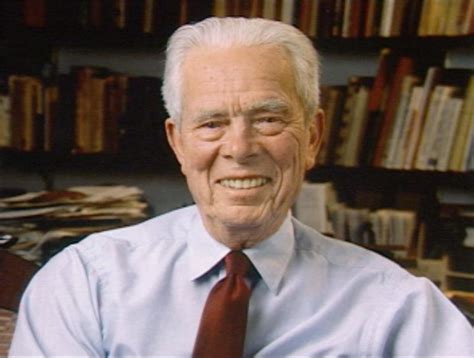A Quote by Gilbert F. White
Every intervention of man in the environment around him incurs some risk as to both favorable and unfavorable consequences. Every intervention is taken in the face of partial ignorance as to what its effects will be and involves uncertainty as to the ultimate outcome.
Related Quotes
I mean, you can agree or disagree with Iraq or Afghanistan, but by the way, now the great campaigning cause out there is the absence of intervention in Syria. And then in Libya, it's partial intervention. And that doesn't really explain why some countries that have literally nothing to do with the interventions in the Middle East end up getting targeted.
The beneficial effect of state intervention, especially in the form of legislation, is direct, immediate, and so to speak, visible, while its evil effects are gradual and indirect and lay out of sight ... Hence the majority of mankind must almost of necessity look with undue favor upon governmental intervention.
Every principle is a judgment, every judgment the outcome of experience, and experience is only acquired by the exercise of the senses; whence it follows that religious principles bear upon nothing whatever and are not in the slightest innate. Ignorance and fear, you will repeat to them, ignorance and fear - those are the twin bases of every religion.
Nothing is so unpredictable as a throw of the dice, and yet every man who plays often will at some time or other make a Venus-cast: now and then he indeed will make it twice and even thrice in succession. Are we going to be so feebleminded then as to aver that such a thing happened by the personal intervention of Venus rather than by pure luck?
But, you will say, we destroy the most hallowed of relations, when we replace home education by social.... The Communists have not invented the intervention of society in education; they do but seek to alter the character of that intervention, and to rescue education from the influence of the ruling class.
We destroy the most hallowed of relations, when we replace home education by social.And your education! Is not that also social, and determined by the social conditions under which you educate, by the intervention, direct or indirect, of society, by means of schools, etc.? The Communists have not invented the intervention of society in education; they do but seek to alter the character of that intervention, and to rescue education from the influence of the ruling class.
In a sense, every tool is a machine--the hammer, the ax, and the chisel. And every machine is a tool. The real distinction is between one man using a tool with his hands and producing an object that shows at every stage the direction of his will and the impression of his personality; and a machine which is producing, without the intervention of a particular man, objects of a uniformity and precision that show no individual variation and have no personal charm. The problem is to decide whether the objects of machine production can possess the essential qualities of art.
In an economy, an act, a habit, an institution, or a law, gives birth not only to an effect, but to a series of effects. Of these effects, the first only is immediate; it manifests itself simultaneously with its cause - it is seen. The others unfold in succession - they are not seen. Now this difference is enormous, for it is often true that when the immediate consequence is favorable, the ultimate consequences are fatal, and the converse.

































